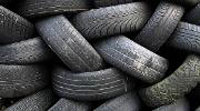| Apr 19, 2013 | |
Forever recyclable novel plastic thanks to old tyres |
|
| (Nanowerk News) Tyres are well suited for recycling. They are easy to collect and do not require any costly sorting process. However, in Europe, still only about 50% of the tyres are recycled. The rest is incinerated or disposed of in landfills. There is still room for improvement to reach the highest international tyre recycling levels. Among the most active, “certain areas in Canada are excellent; for example [in] Alberta, they use all of their tyres for material recycling,” says Valerie Shulman, Secretary General of the European Tyre Recycling Association ETRA, in Brussels, Belgium. | |
 The most advantageous recycling processes are those that result in a new and usable product, according to Gisele Jung, a chemist at the Brussels Free University (ULB). For instance, the Swedish company EcoRub in Öjebin has pioneered such a process, beginning in 1995. Although there is a large variety of tyre reprocessing plants, not many use as innovative a process. The process involves chopping up used tyres into small pieces and separating out the steel and fabric. Then, rubber bits are ground into a powder, and mixed with plastic. A patented compound strengthens the chemical bonding between the two materials. The material, a rubber-like plastic material, is used in trucks or as floor covering. Unlike most recycled plastic products, the material can, after use, be recycled again into a similar product. EcoRub patented the process in Europe and in the United States (US). They also sold licences to four companies in the US that are now exploiting the system commercially, producing between 15,000 and 20,000 tons annually, reports Åke Paulsson, CEO of EcoRub. |
|
| However, in Europe, this recycling process has not been that readily adopted because there were problems with financing, says Paulsson. To help prove the economic viability of this process, the EU funded 50% of ACE, a project aimed at opening the market for the recycling process developed by EcoRub. | |
| Paulsson says that the 3-year project, started in 2010, was quite a success in uncovering the market potentials for this technology in Europe. “We first set out to identify customers and markets, and we succeeded very well. We have roughly four times the market than was thought initially,” Paulsson tells. This, he believes, could partly be because their product is cheaper than other, similar plastics produced by traditional methods. | |
| Experts such as Juan Antonio Tejela Otero, an engineer and sales manager at Renecal, a tyre recycling company in Guardo, in the Palencia province of Spain, agree. He tells: “I believe in this technology, I think it is the future of recycling. For these mixes you can get a very good price and they will be competitive with other products made from virgin materials.” | |
| The next step is to actually start large scale production. EcoRub will be part owner of a production plant to be built in Sweden. |
| Source: By Alexandre Hallemans, InnovationSeeds |
